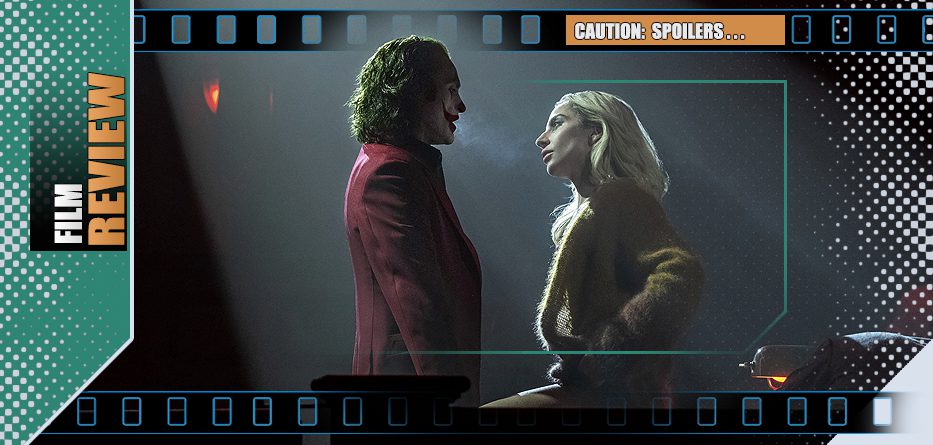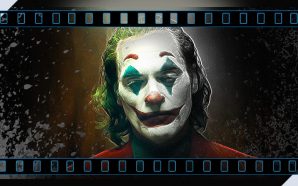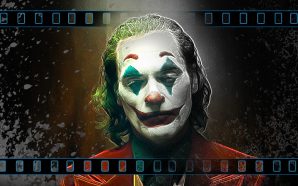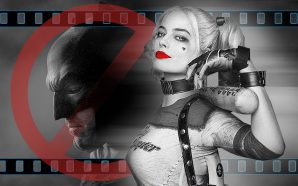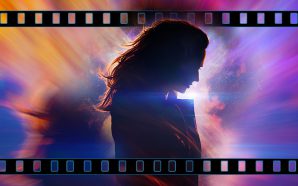*spoilers*
Todd Phillips’ 2019 film Joker was a rare breed: a movie with one foot in the mythology of superheroes, the other in something far more deep and psychological. That doesn’t make it unique – films such as Birdman (starring Michael Keaton) successfully bridged the genres and titled towards arthouse aspirations – but even a cursory viewing of Phillips’ film revealed that beneath the painted laughter of the Clown Prince of Crime’s facade was more of a film about mining the very real and often uneasy concepts of mental health and psychological breakdown. It was not, to be fair, a film for everyone and was definitely not what some might have been expecting. Any connective tissue between Joaquin Phoenix’s performance and that of Cesar Romero or Jack Nicholson was tenuous at best. Even a through line to Heath Ledger’s acclaimed and impactful interpretation was hardly an easy journey. Phoenix, no stranger to taking complex, divisive roles and submerging himself within them, took the role as seriously as the project demanded and, like Ledger, won an Oscar for his troubles – perhaps underlining that the devil has the best tunes and the villains have the best dialogue.
Joker could easily have stood alone, a single triumphant monument to high-brow tone and stagecraft in a landscape where both DC and Marvel‘s were usually more concerned with delivering straightforward superheroing and technicolor thrills. In truth, no-one concerned with it really had anything left to prove, so the very idea of a sequel wasn’t the usual catnip it might have been for a more mainstream comic-inspired production.
But a follow-up was, indeed, announced with both Phillips and Phoenix set to return. The addition of Lady Gaga to the cast was interesting and promising… here was a performer whose theatrical airs and graces had been proven on the big screen in the likes of House of Gucci and A Star is Born (and in addition, her duet with Bradley Cooper at the Oscars was undiluted charisma and chemistry) and the idea that the film would have a musical bent seemed immediately both brave and obvious.
The sequel, acting more as a companion piece, really doesn’t have anything left to say and so settles for vignettes that may or may not be real, musical numbers that are interesting but pause the film rather than give it momentum and ultimately chases profundity but settles for abstract showbiz style…
There was much anticipation about the possibilities but what else would the sequel actually bring given the all-encompassing original?
We pick up Fleck’s story as he awaits trial for the on-screen murder of chat-show host Murray Franklin (Robert De Niro). He’s aware of the celebrity that swirls around, but seems caught between the inability to deal with reality and the attempts of his well-meaning lawyer to get him to a better facility that can handle his mental problems. Into that world comes fellow inmate Lee Quinzel (Lady Gaga) and her presence helps and hinders Fleck as he deals with his court-case… with musical interludes, of course.
Sequels are rarely equals but despite some early scathing reviews that rip it to shreds, this follow-up’s main crime is simply following something dynamic with something pointless. Folie à Deux (French for ‘madness of two’ and also referencing a shared psychosis) feels like an arthouse film made for financial blockbuster returns, which it won’t acheive. Perhaps another clown prince summed it up best with ‘All the right notes, not necessarily in the right order…‘ because while all the ingredients are seemingly here for an outing that could have theoretically equaled the original, the orchestral maneuvers seem to be consistently fumbling in the dark. The first film wasn’t trying to be look-at-me clever, merely insightful: a deep and dark outlier satire about entertainment, a surprisingly profound study of mental illness and of a troubled, broken soul’s slow downward spin into a psychosis – a man ill-equipped to deal with a society’s demands or vice versa. The sequel, acting more as a companion piece, really doesn’t have anything left to say and so settles for vignettes that may or may not be real, musical numbers that are interesting but pause the film rather than give it momentum and ultimately chases profundity but settles for abstract showbiz style.
Phoenix gave us a lonely, sympathetic Arthur Fleck in Joker but although he pulls both the face-muscles and the heart-strings once again, the result is – ironically – a far more pitiful figure, physically and emotionally stripped down to a shadow of his former self and one who consistently feels adrift, finding solace away from his prison cell and courtroom by way of further fantasies. His encounter in the only-in-films-minimum-security social prison choir with Gaga’s Lee Quinzel, gives him an acolyte who appears to worship his Joker persona as a rule-breaker and social outlier but is less impressed when he’s just ‘Arthur’. Gaga is as good as you’d expect, but she really isn’t being asked to do anything ground-breaking. She sings like the star she is and the moments of quiet character-building work well, but too often the fantastical interludes in which she carries the weight, are little more than budget music videos, which is a shame given the opportunity for her and them to be more. It’s as if Philips didn’t quite know what he had and made her little more than a love-interest when she could have been both catalyst and queen. That Phoenix and Gaga are fine almost seems irrelevant – we’ve seen them prove their worth many times over – but it’s the material that they’re given that leads them around in ever-decreasing and unfortunately ever-less-interesting circles with no sense of a journey, swept around with no anchor to give the production the direction or purpose it desperately needs. Phillips now treats Fleck/Joker as distinctly different personalities but can’t decide what to do with either of them. In many ways the film has less in common with the original Joker feature and that defiant Taxi Driver vibe and feels more like a second-tier, approval-seeking Oliver Stone’s Natural Born Killers meets La-La Land.
The likes of talented performers such as Catherine Keener as his lawyer and Brendan Gleeson as a bad-tempered prison guard as well as Harry Lawtey as a bland Harvey Dent and Steve Coogan as a tabloid-tv reporter, are largely wasted in brief supporting roles.
Joker: Folie à Deux could have been another classic – instead it’s all but a pale tribute act, remarkably claustrophobic and awkwardly polka’ing between the limitations of prison and courtroom set-pieces when one would have expected an expansion of its world, not a reductive stance. Visually (and that’s only where the film acheives anything) there are some truly nice, reverential and occasionally inspired flourishes and the soundtrack itself tweaks some classics. But, ultimately for a feature all about shouting and nihilistically raging against the machine and not fitting a template, it finds itself only quietly complaining, shrugging and meandering, seeking obvious comforts well within boundaries… and for sheer enjoyment, you may want to listen to Gaga’s Harlequin tie-in album instead…
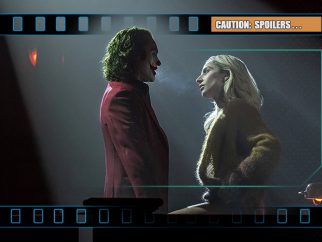
- Story4
- Acting7
- Direction6
- Production Design / VFX7

